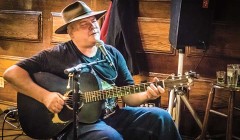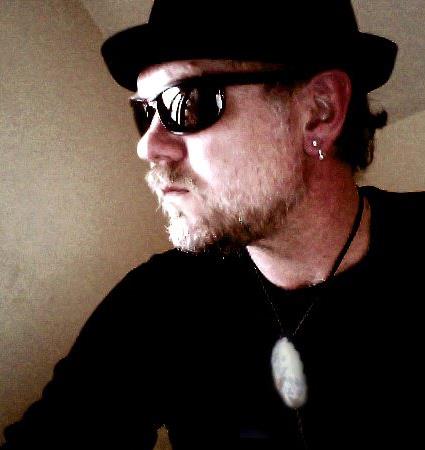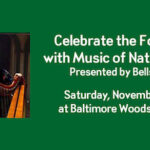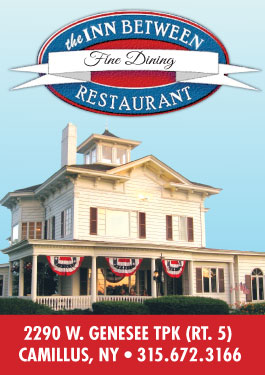Anecdotes of Music with Colin Aberdeen
Some musicians are over it. When you start out, it’s easy to get caught up in the “glamor” of it all, feeling like a “rock star,” and all that. Yeah, right.
Some fade away, some burn out. Some keep going. And as they keep going all the notions of glamor-life sort of turn insipid and silly. In the end you realize that this is simply, “what we do.” After all, by then the cool hair is gone. Still haven’t made Beatle Money. Can’t do fancy back flips on stage anymore without injuring the bass player. All there is left is the music. And an enormous love for it. You realize you don’t just love it. You live it.
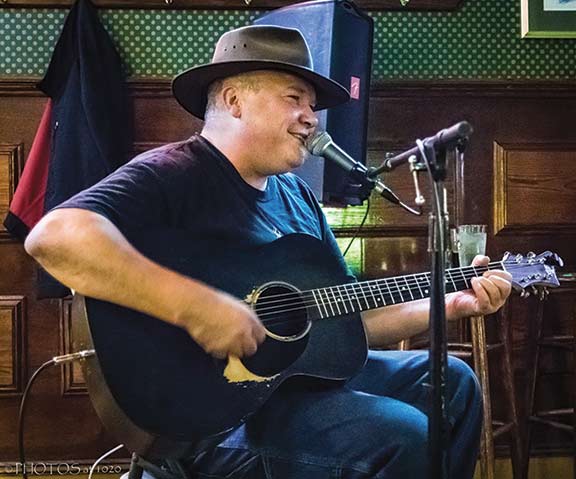 Meet Colin Aberdeen, if you haven’t already. He lives it. It’s what he does. This ain’t no flashy rock’n’roll jive-flash-in-the-pan mumbo jumbo. Colin’s the real deal. Which is why , after so many years, he’s still on the scene as a busy musician. Making it this far means you survived on the depth and quality of your music. Making it this far means that you are it—and it is you. And the whole thing is about the music. We need more musicians like this.
Meet Colin Aberdeen, if you haven’t already. He lives it. It’s what he does. This ain’t no flashy rock’n’roll jive-flash-in-the-pan mumbo jumbo. Colin’s the real deal. Which is why , after so many years, he’s still on the scene as a busy musician. Making it this far means you survived on the depth and quality of your music. Making it this far means that you are it—and it is you. And the whole thing is about the music. We need more musicians like this.
Meet Colin. A mellow dude with something I call “grampa-quality.” In my experiences with him, he’s decidedly kind and generous of his better spirit—which I equate to strength, genuine and comfortable just bein’ a dude among others, and un-boastfully intelligent. Easily approachable and likeable. Nice man who possesses mean hands when it comes to his music. And as seasoned as he is with a sly and humble mastery for the music—always dividing by the factor of relating to his audiences— he is also a seasoned conversationalist. (laughing)
Chuck Schiele: How’s it going Mr. Colin?
Colin Aberdeen: Very well, Chuck. Thanks for the interview.
CS: How long have you been playing music? How did you get started?
CA: I’ve been playing music for about 34 years. I was a late bloomer. I moved from Tenafly, NJ to Syracuse as a sophomore in high school where I went to F-M for my final three years of high school. There I met some friends who like myself, spent more time learning outside the confines of the traditional curriculum, shall we say. They were burgeoning guitarists, they would play and by default, I sang because nobody else was up for it. After being evidently frustrated with my lack of interest in school, my dad asked me one day, “What do you want to do?” The implied part of that question being, we know what you don’t want to do, which is go to school. I was just getting a grip on the idea of trying to play guitar and would occasionally bang around on a friend’s instrument. I replied that I just wanted to travel and play music, even though I couldn’t play at all . He quietly pondered my response and that was that. My dad was a heavy dude and did not suffer fools, especially his own son. The following Christmas there was a cheap, very hard to play, acoustic guitar under the tree. It was a put up or shut up moment but very much in a positive and proactive way. was a late bloomer I really sucked! So, I learned to play solo and support myself musically as a singer. I still play solo a lot and I incorporate both finger picking, which is a more pianistic style of guitar playing and includes contrapuntal bass and melodic parts and flat picking. I am a fairly rudimentary player and I tend to concentrate on the style, feel and groove of the song, primarily. And that has worked for me.
CS: Please, define your music projects, and characterize them.
CA: I started out playing solo, largely because my taste in what I wanted to play was eclectic. And, because I
I eventually started a band called The Westcott Jugsuckers in the late 80’s with my friend Mike Petroff playing harmonica. It also included a guy I worked with at the time named Bill Kerner—one of the most innate musicians and guitarists I’ve ever known. Bill was far and away my greatest musical mentor and guide into true musicianship. In spite of being just a monster guitar player, Big Bill or Washboard Willie as he is known within the Jugsuckers, was hip and cool enough to play washboard with Mike and I, while we explored the joys of delta, and country blues. The Jugsuckers evolved to include a tuba player named Matt Schneider-Adams. When Mike left to pursue his first musical love, playing amplified Chicago blues harp with Dirty Pool, Curtis Waterman joined the band which eventually incorporated Rodney Zajac on baritone sax in place of Matt on the Tuba, who was called home to his day job as a minister. Shirley Woodcock-Kolb later joined us playing National tenor guitar, mandolin, six string guitar and vocals; and Herman “Hymie” Witthoft, who had been playing a bass drum in conjunction with Washboard Willie for a while, who took over on washboard, drums and percussion full time, when Bill moved on to play guitar, elsewhere. The Jugsuckers will be playing at this year’s NY State Blues Fest and at The Golden Harvest Festival at Beaver Lake Nature Center in September.
I also play with a bad ass quartet called Los Blancos, which began with myself and guitarist Jose Alvarez, now a
two-time Grammy award winner and former touring member of Louisiana legend, Terrance Simien’s Zydeco Experience. Our original four-piece was rounded out with drummer Paul Roerhig, and my longest suffering associate, Steven T. Winston ably thumping the bass. When Paul left after completing his PHD, Garnet Grimm, who now tours the world as the drummer in Savoy Brown , took over on the drums for about 5 years. The current and longest serving line up includes the inimitable Mark Nanni on the organ/keys/accordion, Mark joined the band just as Paul was transitioning out. After Garnett left, Mark Tiffault, a seemingly ubiquitous player in the most rockin’ bands from our region for the last 35 plus years, joined the band as our drummer. I love Los Blancos and I am immensely proud of it.
CS: Tell us about your gear of choice.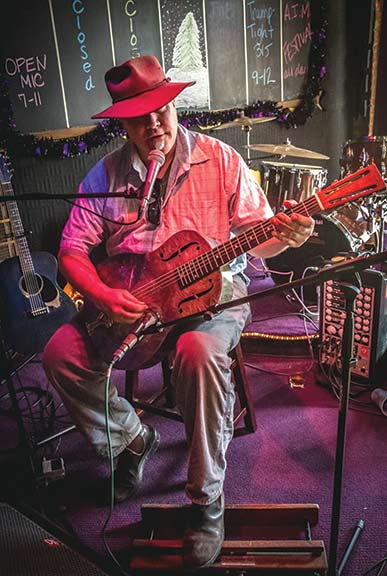
CA: I’m not a gear head at all. I just use what works.
CS: You play covers and original music. Talk about how you select your cover material. Please also discuss how you go about writing your material.
CA: Great question. Well, I’m a pretty simple guy, I tend to just play songs I like, to which I feel I can do some justice. I love turning people on to my heroes who are usually somewhat obscure to many, often in spite of their storied careers. As far as writing stuff goes, I usually get a little lyrical idea and/or a melody or feel and I just build it from there. My songs are usually fairly basic, nothing ground breaking. But, I have had great responses to some of them
Having people request songs you have written and to hear about what they liked or could relate to is the most rewarding part of song writing . When you write songs… I don’t think you really know fully what they mean until listeners explain what they mean to them. Songs are a proverbial form of a message in a bottle, it wasn’t written for the author to read, it was written for the recipient or audience.
CS: What writers do you look to, admire, learn from, etc. Locally and non-locally?
CA: Well, my band mates are my most immediate fellow song writers and though we don’t really collaborate on the writing of songs in a co-writing sense, they are my closest fellow writers who have helped me flesh out my favorite songs of my own and helped me bring them to life and they all have some good tunes in their repertoires that I love to play. I also learn from listening to my peers in the region who are too numerous to start naming but man(!), do we have some good song writers, bands and players in this region. I have been blessed w so many great influences and songs. I can’t even begin to include them all and I’m leaving so much out but I really love sharing songs. It’s why I play music.
CS: You’ve been at this a long time. What are some of the more notable moments along the way?
CA: Oh man…. that’s a tough one. Once again, too many to single them out. Firstly, being a member of Los Blancos, The Westcott Jugsuckers and the Barking Loungers and the very deep, rich regional music scene in which I have had the opportunity to learn. Especially all the blues cats, rockers, folk musicians, country players, funk bands, jazz cats, acoustics acts and R’n’B bands, alike in this area who helped to shape my ideas of what my music could sound like. But really, getting to share music I love w the people I have been lucky enough to play with, and for the audiences who have allowed us the opportunity to play for them. To be allowed to be part of the sound track of one’s community and peers, is the greatest honor of all.
CS: Please share a funny gig war story.
CA: Well, we’ve seen some crazy stuff out here throughout the years. Entire wedding parties getting naked and boogyin’ on down, crazy bar brawls through which we had to load our gear with a sufficiently unimpressed dispassion that the local Vermont cop even commented upon it, as we were literally stepping over the vanquished foes of the establishment as we put our gear in the van. I even played a wedding for a couple where the groom proposed as he was hauled off by federal agents outside of our gig—after he and his bride to be, had led them on a slow chase in the limo they had rented while mildly avoiding his inevitable capture.
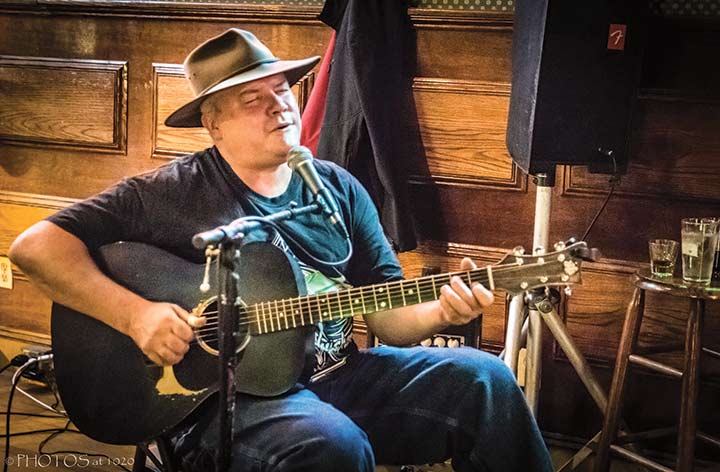 CS: Please share your views on the CNY music scene.
CS: Please share your views on the CNY music scene.
CA: The Central New York music scene reflects CNY. It has an inferiority complex that it is not merited. It’s a great region with tons of talent in all manner of musical genres. We have great bands and musicians who are playing their butts off every night of the week. We have bands and players out touring, and making their way in the world who many people around here have never even heard about. We have many fine players who have begun their careers here and moved on to larger and more active music business centers. What our music scene needs is more people and greater support at the existing venues and then hopefully, more venues. We need exactly what you are offering, Chuck. And, that is coverage—raising the awareness of what’s happening. It can’t be a charitable act to support the poor struggling musicians and venues. It must be compelling for people to go and hear live music. They must feel driven to go and hear the bands and players because they just cannot stand to miss something. I hate that starving artist crap. Make it work, find a way, find your path and create your own scene.
The live audience is a virtual extra member of the band in creating the experience.
CS: What does the ol’Pro have to say for the budding musician?
CA: I guess some of the best players I know have what I refer to as “golden handcuffs”, they play music solely for money that they don’t love just because it pays their bills. I do not fault them or blame them, it is a business and if you are going to make your living at it, that’s a situation in which, one may find one’s self.
One thing I would add is, the idea that musicians who have day jobs are in any way lesser players is the most ridiculous bullshit I have ever heard in my entire life. Wes Montgomery held a day job his entire career and recorded as much brilliant and influential guitar playing as any musician of whom I am aware. Don’t let some insecure schnook impose that junk on you.
CS: How is the summer schedule looking for your music endeavors?
CA: My schedule is a little slower than in years past, but, as I have less commitments, I am able to pick up a lot of solo work, and to play with my trio, Colin Aberdeen and The Barking Loungers and Los Blancos. I’m very psyched to play the NY State Blues Fest with The Westcott Jugsuckers, Friday July 8th and we have some cool dates with Los Blancos, also, like the Boathouse Blues Festival, down in Romulus, NY on June 18. I have a live solo recording I am hoping to get released in the not too distant future. Los Blancos also has a real good recording in the can. And most importantly, I’m gonna be spending a bunch of time with my daughter, Marley, swimming, playing, grilling, chilling and generally having fun
CS: I know you have even more than that going on. Where can we keep track of you and your music?
CA: Chuck, I am kind of like a caveman in a modern world and one of the worst business people you’ll ever meet. Los Blancos has one at www.casablancos.com. Look me up on Facebag for now. I post my gigs there for the time being.
CS: Ok, that about wraps it up, brother. Thank you, so much, for sharing some music time with us here at Table Hopping.
CA: Thank, you, Chuck!
Chuck Schiele is an award-winning musician, art director, producer, editorialist, artist, activist, member of SaltCityChill.com and fan of the CNY music scene. To be considered for this column, please write chuck.schiele@gmail.com.

